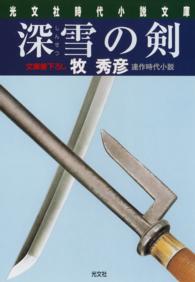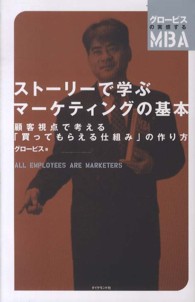Full Description
This book provides an overview of the Japanese sex industry in the years of Japan's postwar economic boom. It argues that the origins of gender inequality in contemporary Japan resulted from the policies put in place during this period, when there was instituted a "sexual contract" which provided male salarymen whose work was arduous, underpaid and subject to military-like organisation with easy access to women's bodies, through workplace getaway trips to hot springs resorts, hostess bars, and prostitution tourism to South Korea, as sexual inducement to acquiesce to their own exploitation. Japan's economic growth, the book thereby contends, came at the price not just of environmental and labour degradation, but also gender inequality.
Contents
Dedication Acknowledgements Introduction Chapter 1: Corporate subcontracting of sexual and social imperatives Chapter 2: Finding the state in the sex industry of the high growth era Chapter 3: The 1950s new deal of the post-occupation patriarchal state Chapter 4: Ian Ryokou workplace getaway trips Chapter 5: Hostess bars and corporate entertaining in the 1960s Chapter 6: Corporate kisaeng prostitution tourism Conclusion: Prostitution as an institution of the peacetime state








